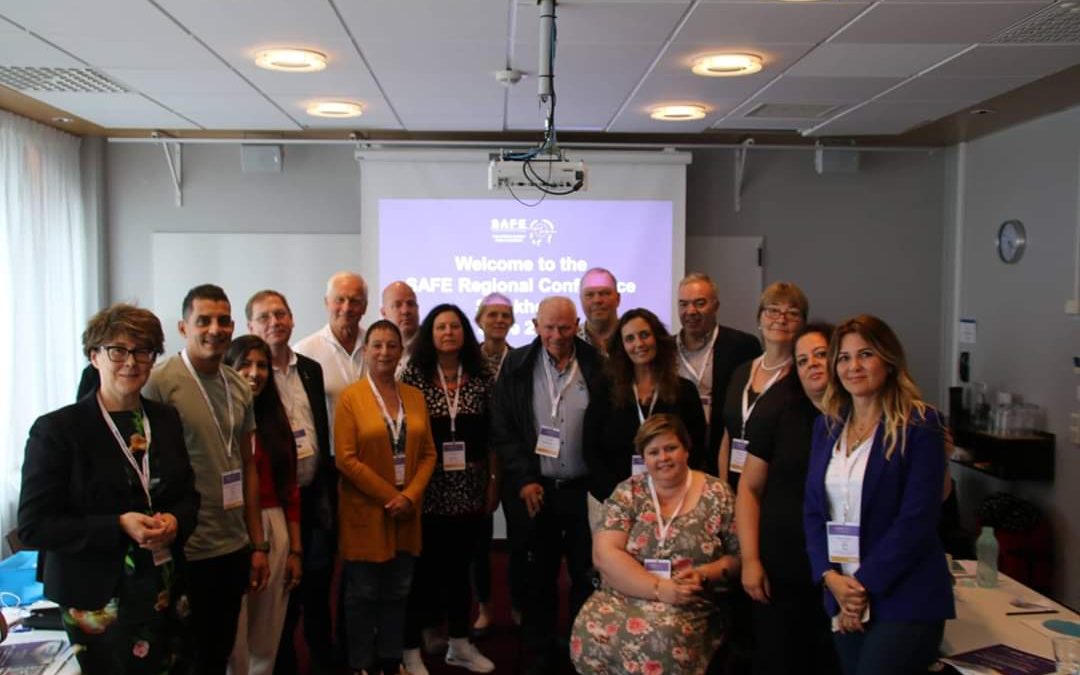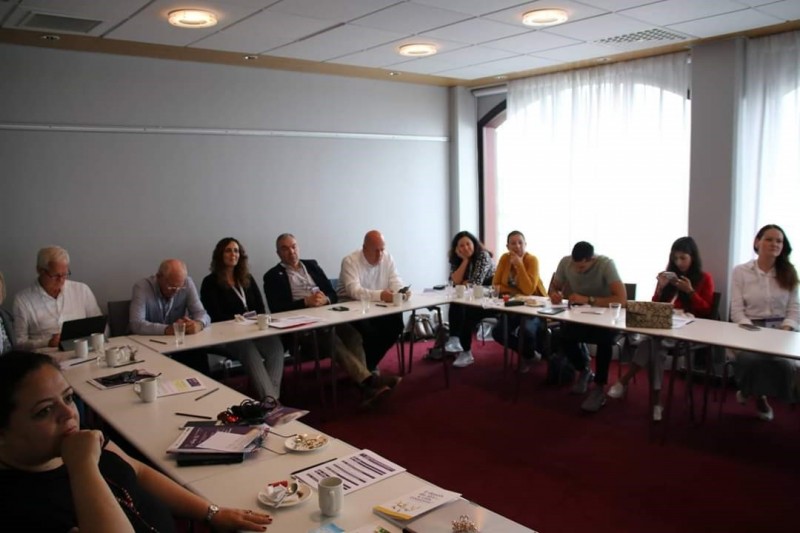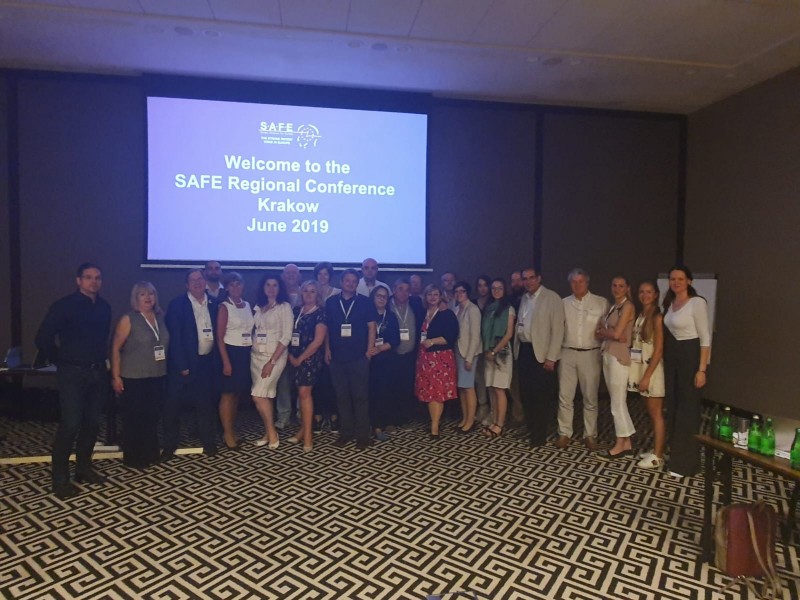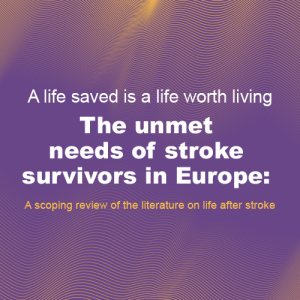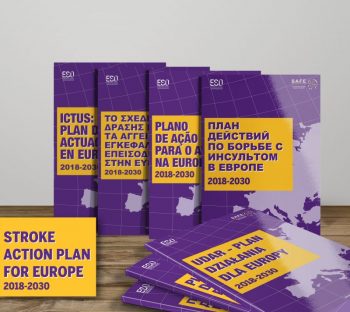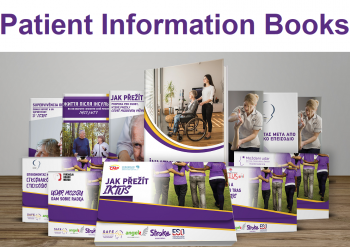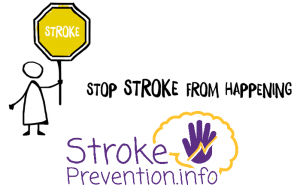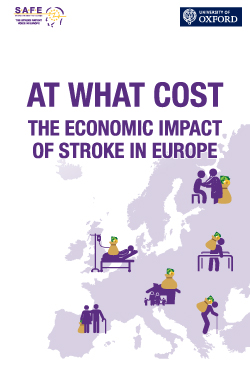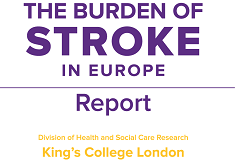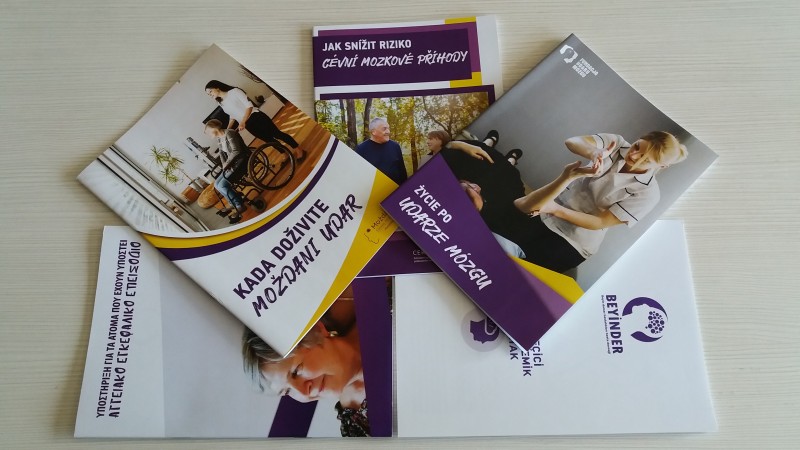
May 30, 2018
SAFE is proud to be part of the Angels Initiative project, providing critical information to stroke patients when they most need it, already in the stroke unit. The realisation of this project started simultaneously this May in 12 European countries: Spain, Serbia, Poland, Czech Republic, Latvia, Croatia, Macedonia, Greece, Ukraine, Georgia, Hungary and Turkey. (more…)
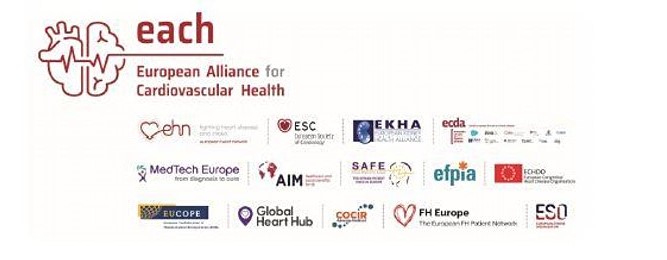
Sep 27, 2021
European organisations join forces to shine spotlight on cardiovascular health
Today, SAFE joins the European Alliance for Cardiovascular Health calling for European action on CVD including stroke.
Grethe Lunde, stroke survivor, says
“When I was 22 years old, I had a stroke. That was 27 years ago. I know the devastating impact a stroke has not only on the stroke survivor but also on friends and family.
Stroke is the second leading cause of death and the biggest cause of adult disability in Europe. Sadly, despite these facts, stroke is often overlooked and underfunded.”
Arlene Wilkie, SAFE Director General, says
“Together under the umbrella of the European Alliance for Cardiovascular Health, we will have a bigger, stronger, united voice which will help raise the profile and shine a spotlight on stroke and ensure that every life saved is a live worth living.”
The full press release is here:
European organisations join forces to shine spotlight on cardiovascular health
Topics: Cardiovascular prevention, policy, research, innovation, patients with cardiovascular disease
Embargo: 27 September 2021 at 07:00 CEST
Brussels, 27 September 2021: The European Alliance for Cardiovascular Health1 launches today to raise awareness of the burden of cardiovascular disease (CVD) and call for action from European decision-makers.
The announcement comes ahead of World Heart Day on 29 September.
CVD is a group of conditions affecting the heart or blood vessels – they prominently include heart attacks and strokes, as well as arrhythmias and congenital heart disease. CVD is closely interlinked with other chronic diseases, such as diabetes or kidney disease, but also vascular dementia which is often caused by heart disease and stroke.
CVD is the leading cause of death worldwide. In 2019, an estimated 17.9 million people died from CVD, representing 32% of all global deaths. Of these deaths, 85% were due to heart attack and stroke2. CVD is also the leading cause of death in the European region, accounting for 47% of all deaths in women and 39% in men3.
In the EU, CVD accounts for 36% of all deaths and impacts the lives of some 60 million people who live with cardiovascular conditions. CVD is not limited to the elderly, but heavily impacts people of all ages. Around 20% of all premature deaths (before the age of 65) in the EU are caused by CVD4.
To ensure that Europe’s strategy for tackling CVD matches the scale of this collective challenge, the Alliance brings together, for the first time ever, 15 leading European and international organisations representing the full range of health actors. Together they offer an extraordinary wealth of knowledge in cardiovascular health.
Collectively, the Alliance represents:
· tens of millions of patients.
· more than 200,000 health professionals.
· over 400 health technology companies.
· health insurers covering the medical costs of more than 200 million people.
· millions of people living with genetic CVD risk factors but who have not been diagnosed yet.
The Alliance’s partners are committed to joining forces and sharing expertise to:
· raise awareness of the burden of CVD on society.
· call for a European CVD Plan to improve cardiovascular health, optimise quality of life in patients and undiagnosed citizens with CVD, and prevent first and subsequent heart events and strokes.
· advise policymakers on actions to improve cardiovascular health and to prevent CVD in Europe, thereby making the population more resilient to future pandemics and other health threats.
· mobilise investment for CVD research and promote public-private partnerships in CVD innovation.
· ensure swift and equitable access to new medical technologies and medicines that add value to patients and society.
In its first meeting today, information on the European Alliance for Cardiovascular Health is complemented by personal stories from patients about living with heart disease and stroke, giving insights into the needs of those with CVD and thus setting the European policy agenda. Policy debates follow, with EU decision-makers giving feedback on the Alliance’s proposals and paving the way for a constructive and forward-looking collaboration.
Jouzas Olekas, MEP Heart Group Supporter said: “The EU must act decisively to improve the cardiovascular health of European citizens and to create a strong as well as holistic European Health Union. Now is the time to tackle the increasing burden of cardiovascular disease and ensure that everyone can live longer, healthier lives – regardless of where they were born or live – and continue to contribute to society.”
ENDS
Note to the editor:
For press queries, please contact the European Alliance for Cardiovascular Health Secretariat: each@escardio.org
1 www.caridovascular-alliance.eu 2 World Health Organization Fact Sheets: https://www.who.int/news-room/fact-sheets/detail/cardiovascular-diseases-(cvds) 3 ESC Cardiovascular Realities 2020 4 ESC-EHN, Fighting Cardiovascular Disease: a blueprint for EU action: https://www.mepheartgroup.eu/wp-content/uploads/05748-CVD-plan_FINAL.pdf


